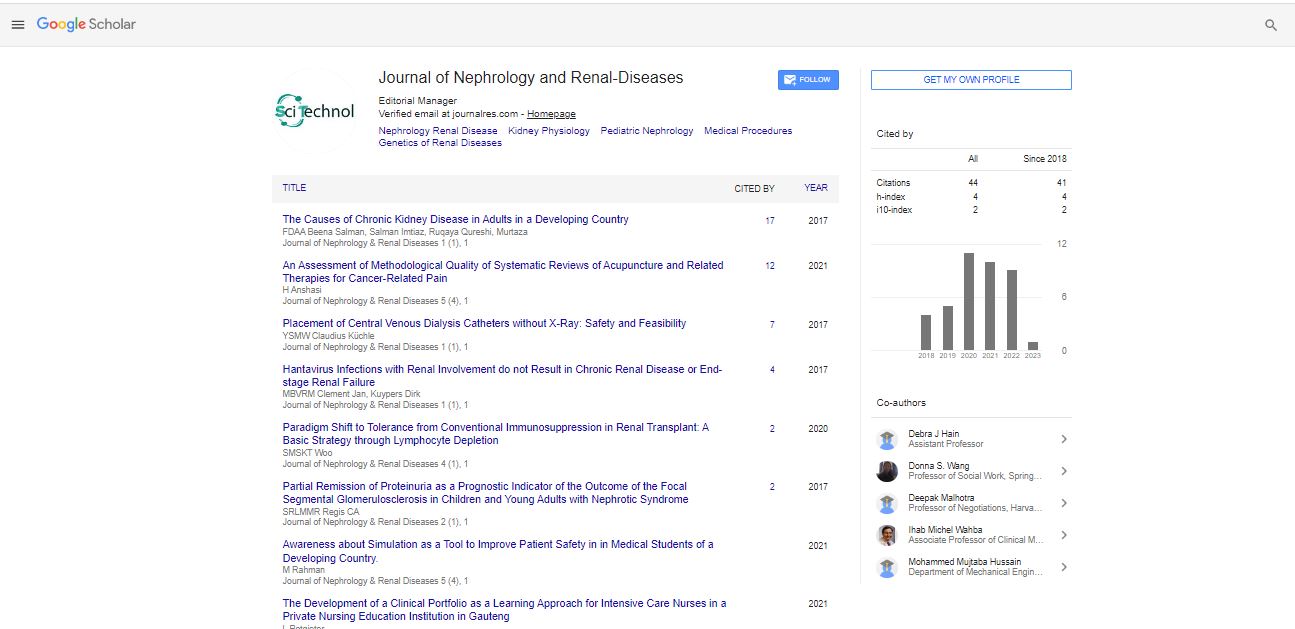Aristolochic acid nephropathy and/or Balkan Endemic nephropathy as the worldwide problem: Tip of the iceberg?
Nikola M Pavlovic
Serbian Medical Society, Serbia
: J Nephrol Ren Dis
Abstract
Balkan Endemic Nephropathy (BEN) is a chronic renal disease that occurs following the fourth decade in residents of confined regions of the Balkan affecting up to 5% of the population and shows a very high association with Upper Tract Urothelial Cancer (UTUC). The first cases described in Serbia and Bulgaria date to the late 1950’s. The etiology of BEN has been the extensively studied which resulted in the publication of numerous hypotheses. Only one them putting forward the chronic Aristolochic acids (AAs) as the etiologic agent provided conclusive evidence related to BEN etiology. Aristolochic acid nephropathy (AAN) was initially reported in early 1990’ after the intake of slimming pills containing Chinese herbs. This nephropathy was initially called Chinese-Herb Nephropathy (CHN) and developed a high risk of UTUC. Similarities of CHN and BEN implied a common etiological agent for both diseases. Based on the studies of AAs-specific DNA adducts and TP53 mutation spectra in AAN and/or BEN-associated UUC, the causative role of AAs have been demonstrated. The recent studies showed that some food crops can uptake AAs from the soil or nutrient solution. Consequently, the consumption of such AAscontaminated food may represent the major exposure pathways and one of the leading causes of AAN and/or BEN and attendant UTUC. It is likely that due to the lack of our understanding of exposure pathways AAN and/or BEN remain under diagnosed and underestimated beyond the Balkans. Therefore, BEN and/or AAN are worthwhile to trace in any case of unclassifiable progressive decline in renal function. Figure: Exposure pathway in the etiology of Balkan Endemic Nephropathy
Biography
Nikola M. Pavlovic has graduated at the Medical Faculty, University Nis, Serbia in 1974, and become BMedSci 1979, Lecturer in Internal Medicine 1979, Specialist in Internal Medicine 1982, PhD of Medical Sciences 1986, and Associate Professor in Internal Medicine1988, British Council Scholar, Research Fellow, October 1982 – June 1984 at the Department of Renal and Nephrology Services, Royal Free Hospital, London, UK. He has a long-standing interest in looking at the clinical and epidemiologic characteristics of BEN and has the vast experience and expertise in diagnosis and treatment of renal and disorders in hemodialysis and peritoneal dialysis patients. He is Skilled in Research, Clinical Research, and Customer Service. Strong professional graduated from Medical Faculty, University of Nis, Serbia.
 Spanish
Spanish  Chinese
Chinese  Russian
Russian  German
German  French
French  Japanese
Japanese  Portuguese
Portuguese  Hindi
Hindi 
